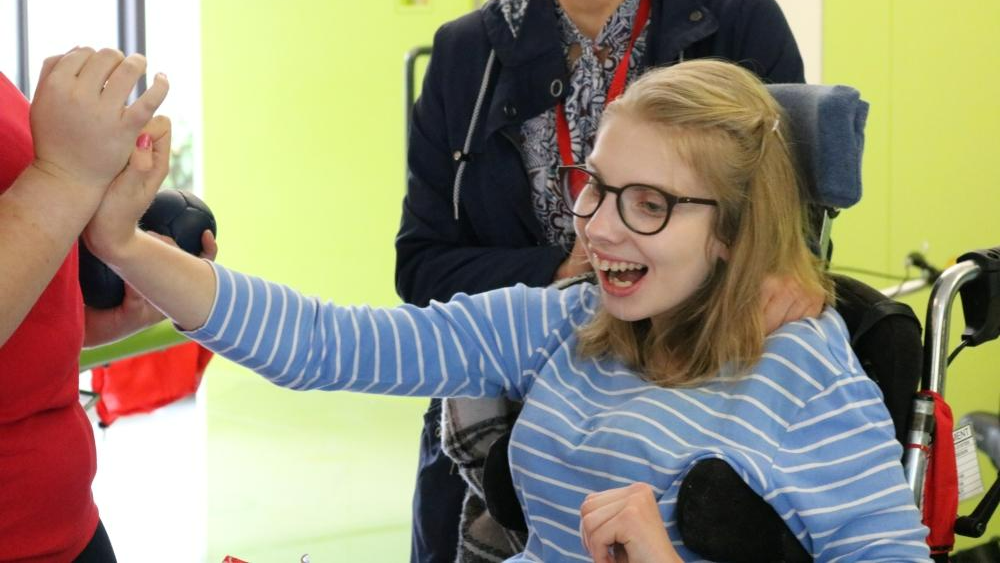
Residential rehabilitation
We offer a range of residential brain injury rehabilitation services for children and young people with acquired brain injury (ABI).
Debbie tells us about her triplets: one who needed lifelong care, and another who was left with a brain injury after an accident that saw Debbie lose her husband.
Published: March 2016. Date of brain injury: 2010 (young person aged 16 years).
“I can see three heartbeats,” the sonographer said. “You’re having triplets!” After years of trying for a family, my husband Barry and I had sought medical assistance and knew there was a chance of multiple births.
Finding out there were three babies on the way was surreal – and wonderful!
Everything went smoothly until, at 30 weeks, I went into premature labour.
Doctors gave me medication to stop the contractions and searched for a hospital that could cope with three premature babies.
On 12 June 1993, I gave birth to three girls by c-section. First came Catherine, who was 2lb 4oz, followed by Eleanor, then Jo, weighing the same.
They were rushed to the special care baby unity. Over the next few days, Ellie and Jo suffered bleeds on their brains leaving them with cerebral palsy. Ellie was mildly affected in her balance and fine motor skills and she and Catherine came home on their due date in August.
But Jo had breathing and reflux problems and remained in hospital until April 1994. It became clear that she wouldn’t be able to walk or communicate, and would need a lifetime of care.
It was a shock, but to us, Jo was just one of our lovely girls.
By the time they were toddlers, they had very different personalities. Jo had a happy character and loved attention, Catherine was reserved and Ellie was everyone’s best friend.
Having triplets could be tough. If we all managed to leave the house fully clothed by lunchtime, it was a success.
Once the girls reached five, Catherine and Ellie attended mainstream schools and Jo went to one catering for special needs.
The following years flew by in a blur of laughter, fun and camping holidays.
Barry was a car enthusiast and loved his Caterham sports car. He’d regularly go to Owners Club meetings, often with Catherine.
Jo had some breathing problems, but her health wasn’t too bad. Catherine liked to spend time with Jo, and was thinking about medicine as a career, while Ellie was arty.
The girls turned 16 before we knew it, Catherine and Ellie dressed up for their school prom. The following year they were in their second year of A-levels
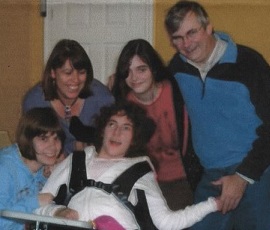
On 26 September 2010, Catherine went with Barry to an Owners Club meeting.
An hour later I was driving Ellie to a riding lesson when I head a radio news report saying there’s been a serious accident on the nearby A283.
“That’s the road Barry’s taking”, I thought.
Once Ellie and I reached the stables, I texted Catherine’s mobile. When she didn’t reply, I texted again and a horrible feeling came over me. As soon as I arrived home and saw that Barry’s car wasn’t on the driveway, I knew something had happened.
A neighbour said the police had been round and she gave me a card.
Hands shaking, I dialled the number on the card. Minutes later, two officers in uniform arrived. One of them told me there’s been an accident, adding “We’re sorry to have to tell you that Barry died at the scene. Your daughter, Catherine survived, but is in hospital.”
My world fell apart. My husband was gone. The happy family life we’d known was over.
But Catherine needed me. I was taken to Hurstwood Park Neurosciences Centre, Haywards Heath.
I found my lively daughter lying silently in an intensive care bed, unconscious and on a ventilator. Her neck was in a brace.
A consultant told me Catherine had a catastrophic head injury. The injury had caused her brain to swell. With the pressure rising, she had surgery to remove a large slice of her skull to give her brain space to expand.
With just skin covering the gap, she looked so vulnerable. But I knew Catherine would fight to get better.
Meanwhile I just tried to keep going. Family and friends – especially Barry’s brothers and his brother-in-law – visited Catherine daily and gave me support with Ellie and Jo.
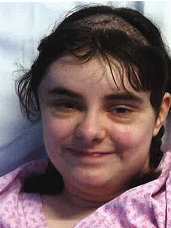
But Catherine was growing stronger.
On 26 October, her doctors began reducing the ventilation, and by the end of November she was breathing for herself. On 14 October Barry’s funeral was held. I hadn’t had a chance to grieve for the husband I had loved so much.
Her eyes were open but they didn’t move. She didn’t speak or react to anyone and the slightest touch could leave her body trembling.
The noisy ward was no place for my daughter to recover so I was overjoyed when Catherine was given a place at The Children’s Trust in Surrey – the UK’s leading charity for children with brain injury.
She was transferred there on 29 December, and within weeks, made a marked improvement.
She was less tense and began moving her left arm to answer yes or no. Her eyes were following people around the room and when I arrived for a visit, they lit up.
One day, a nurse was cleaning Catherine after she’d been fed. “I don’t know why I’m doing things,” the nurse joked. “Bet you could do it yourself.” She put the flannel in Catherine’s hand and my girl held it to her face. I felt like punching the air for joy!”
Endless hours of therapy followed and Catherine’s hard work paid off. First she mouthed the words, then whispered ‘mum’, a magical moment for me.
Steadily, her voice got stronger and she could make herself understood.
Several months after the accident she asked “Where’s dad? Why hasn’t he come to see me?”
We’d kept news of her dad’s death from Catherine, but it was time to tell her the truth.
When she asked if he was dead, I nodded my eyes full of tears. I still hadn’t come to terms with Barry’s death, but Catherine’s grit kept me going.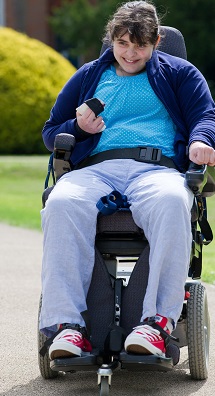
She learnt to use her hands and arms, then stand. Using bars, she took her first steps, but got about in an electric wheelchair.
After 22 months at The Children’s Trust, in September 2012, Catherine enrolled at the National Star College, Cheltenham, which provides further education for people with disabilities. After three years she gained qualifications in health and social care, maths and customer services.
In July 2015, Ellie and I watched Catherine, using her crutches, walk to collect her graduation certificate.
Afterwards I hugged her and said: “Dad would be so proud.”
Since then, our family has suffered another tragedy when, in December 2015, we lost our beloved Jo at just 22.
Catherine, Ellie and I miss her and her dad every day. But now, with Catherine starting to live as independently as possible, I have a chance to grieve properly.
I’m so grateful to The Children’s Trust for their amazing work. That, along with Catherine’s determination, has made her the girl who fought to live – and won.
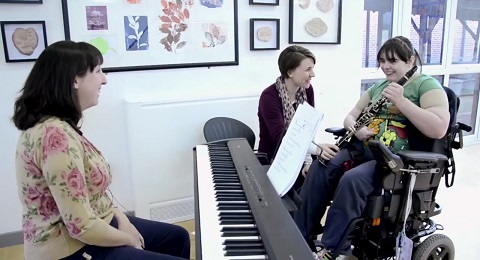

We offer a range of residential brain injury rehabilitation services for children and young people with acquired brain injury (ABI).
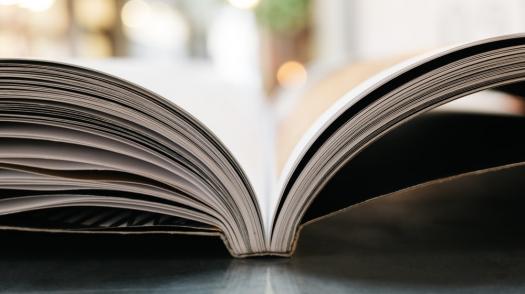
This section looks at the way acquired brain injury can affect the rest of the family.
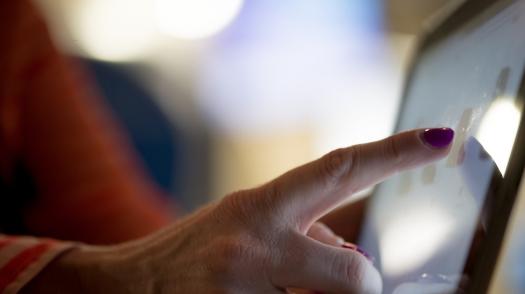
This section talks about the steps towards adulthood after an acquired brain injury.